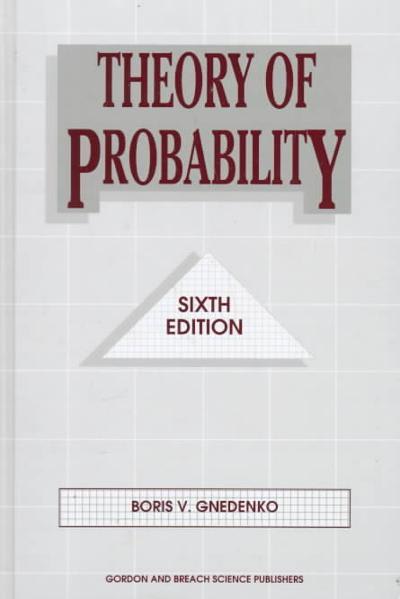Prove that the distributions of (a) Pascal (Exercise 1 (a) of Chapter 5), (b) Polya (Exercise 1
Question:
Prove that the distributions of
(a) Pascal (Exercise 1 (a) of Chapter 5),
(b) Polya (Exercise 1 (b) of Chapter 5),
(c) Cauchy (Example 5, Ssc. 24)
are infinitely divisible.
Exercise 1:
(a) \(\mathrm{P}(\xi=k)=\frac{a^{k}}{(1+a)^{k+1}}, a>0\) is a constant (this is the Pascal distribution).
(b) \(p_{k}=\mathbf{P}\{\xi=k\}=\left(\frac{\alpha \lambda}{1+\alpha \lambda}\right)^{k} \frac{(1+\alpha) \ldots(1+(k-1) \alpha)}{k!} p_{0}\) for \(k>0\) where \(\alpha>0, \lambda>0\) and
\[ p_{0}=P\{\xi=0\}=(1+\alpha \lambda)^{-\frac{1}{\alpha}} \]

Fantastic news! We've Found the answer you've been seeking!
Step by Step Answer:
Related Book For 

Question Posted:





